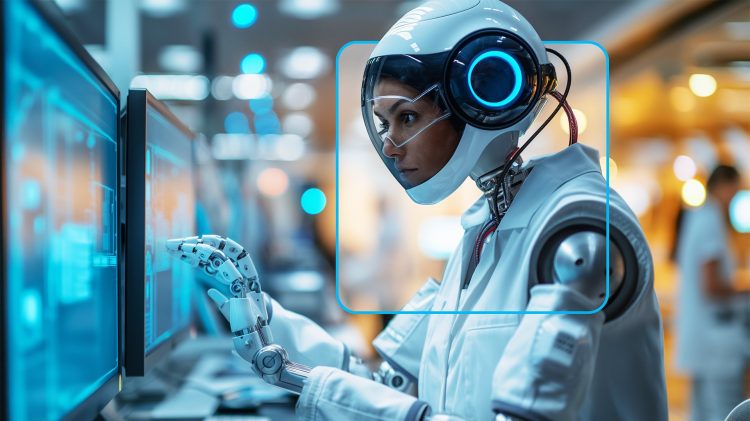BY MAINASARA YAKUBU KURFI
September 6, 2025
When people hear the phrase Artificial Intelligence (AI), their minds often jump to images of robots, machines that think like us, or perhaps even computers plotting to outsmart their makers. But beyond the hype and science fiction, AI has quietly slipped into our everyday lives in the chatbots that answer our questions online, the apps that recommend what to watch, and the invisible algorithms deciding which news headlines pop up on our screens. This growing concern forces us to ask: how intelligent is artificial intelligence.
The truth is, AI is not some mystical brain. It is the product of decades of work in computer science, statistics, and engineering. What looks like “thinking” is really machines processing huge volumes of information, spotting patterns, and making predictions. A medical AI, for instance, can scan thousands of X-rays and flag possible signs of disease faster than a doctor. Yet, it does not understand sickness or feel the weight of a diagnosis. It only sees recurring shapes and signals in data.
That brings us to a difficult question: is AI genuinely intelligent, or is it just an impressive mimic? Human intelligence is a rich blend of memory, imagination, intuition, creativity, and moral reasoning. AI, on the other hand, is bound by logic and data. It has no consciousness, no emotions, and no ethical compass. When it composes a song, drafts an essay, or navigates a self-driving car, it is not expressing originality or judgment, rather, it is following patterns it has been trained on.
Still, to dismiss AI as a hollow copy would be unfair. In many areas, its capacity far surpasses ours. Financial institutions now rely on AI to sift through millions of transactions in real time, flagging fraud almost instantly. Farmers use AI forecasts to predict rainfall and manage their crops better. In classrooms, adaptive learning platforms help teachers customise lessons for each student. These are not small feats. They reshape how we live and what is possible.
But here lies the danger: if we treat AI as smarter than it truly is, we risk serious consequences. Algorithms are only as fair as the data they consume. When hiring systems are trained on biased records, they replicate those biases, shutting out women or minorities. When we allow too much decision-making to be outsourced to machines, we risk weakening our own judgment, and societies that rely on shortcuts may lose their ability to think critically.
That is why interrogating the “intelligence” of AI goes beyond philosophy. It is a responsibility we all share. Policymakers must regulate how AI is built and used. Tech companies must be transparent about their algorithms. And the rest of us, as citizens and consumers, must develop the digital literacy to know what AI can and crucially, what it cannot do.
In the end, the real intelligence lies not inside the machine but in how humans design and guide it. AI can calculate, but only people can care. It can analyse, but only we can empathise. If we keep that in mind, AI will remain a tool that amplifies human potential, rather than one that diminishes it.
- Professor Mainasara Yakubu Kurfi is a Senior Lecturer at the Department of Mass Communication, Bayero University, Kano




